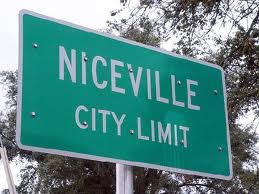The following post is also part of a Book Roundtable at patheos.com on Matthew Levering’s new book, The Betrayal of Charity. For this and other posts, please go to the Roundtable.
St. John tells us that “There is no fear in love, but perfect love drives out fear” (1 Jn 4:18). One of the striking aspects of the recent tragedy in Norway has been the consistent refusal of its citizens to succumb to fear and compromise the extraordinary openness of their society… even though the attacker was one of their own. In a memorial service, the Lutheran bishop proclaimed that “we will not let fear paralyze us,” and I saw a TV report of a parent bringing a young daughter to a memorial service, remarking that she did not want to hide away in fear of such attacks. Contrast this with the extraordinary “culture of fear” that has been perpetuated in the United States, not simply since the 2001 terrorist attacks, but for many decades, in which citizens routinely and severely overestimate violent crime and various threats to public safety.
This is the context in which I’m considering Matthew Levering’s fine book, The Betrayal of Charity, interpreting St. Thomas Aquinas on love and on sins against Christian love. Levering is an outstanding expositor of Aquinas, and that Aquinas’ rich discussions of aspects of all the virtues deserve more attention than they usually get. Aquinas, contrary to typical stereotypes, is not a rule-bound, abstract bore, but a wonderfully-incisive student of human nature and action! And Levering treats us to exactly this St. Thomas, leading us to think about how envy, sloth, and back-biting ruin the possibilities of our communion with God and with our neighbor. Moreover, Levering helps us see that Christian love is not simply sentimental feeling – it involves crucial commitment of faith, and it can be undermined not simply by isolated “mortal sins” but also (and more usually?) by the vices explained here.
Key to the book is recognizing that genuine charity takes its proper place within a whole fabric of Christian belief and practice. Levering’s initial treatment of the virtue of charity follows Aquinas in maintaining that it is inseparable from faith and hope, and in particular, faith in the revealed Trinitarian God and his sacramental body, the Church, as well as hope in the resurrection of the body and life eternal. In a pithy summary, Levering writes that “charity transforms and elevates our natural love so as to build up communities ordered to the common good, the Trinitarian communion of love” (7). Thus, Levering’s book is not simply an exposition of Thomas on charity, but an engagement with a wide range of thinkers on a variety of topics. We get John Howard Yoder on pacifism and Regina Schwartz on the dangerous of monotheism, we get John O’Malley on interpreting Vatican II and Timothy Jackson on the problem of a “heavenly reward” for charity. Levering says that “a close look at each discussion, however, shows that controversy over the nature of charity (and thus of the sins against charity) drives the discussions. … I seek to underscore the connections between the life of charity and the triune God, the church, the theology of the cross, the resurrection of the dead, sacramental mediation, and so on” (3). So goes the rest of the book. It turns out (unsurprisingly) that Aquinas defends an orthodox Catholic view on all these topics, and that his treatment of the sins against charity depend on getting these beliefs right. Thus, most of the other thinkers treated – with the exception of Rene Girard – are dismissed. Too easily, perhaps.
Which brings me to what I might call the “Norway problem.” Norway is one of the most secularized nations on earth. Only 32% of people even assent to a belief in God. Church attendance hovers around 2-3% (presumably including the attacker!). The Catholic Church is an even tinier sliver of this. How is it that the United States, with, say, 25% church attendance and 90+% belief in God, responds to crime and attacks out of excessive fear, whereas the overwhelming reaction of secular Norway is to cast out fear? Levering’s text would have difficulty explaining this. For example, he suggests that without reliance on God, we ultimately will live in a Hobbesian society of overwhelming envy. Um… Norway? Or, he says, if we do not believe in the resurrection of the dead, we will succumb to pure hedonism and ignore charity. Um… Norway?
Such a claim is limited by the nature of a blog post – it’s no knock-down argument, to be sure, and I myself am much in agreement about the interconnections of faith, hope, and love Aquinas traces. I’m a Catholic and believe in sacramental mediation, eternal life, and Christocentric salvation from sin. But surely our world presents a more complicated picture of these matters, and at least there is needed some explanation for why a secular society like Norway would respond with seemingly exemplary charity, whereas a much more Christian society like the United States habitually tends toward non-charitable responses laden with fear. What is the disconnect? And how might our discussions point out more clearly why Christians are such poor witnesses to the charity that Aquinas so powerfully presents?




Trackbacks/Pingbacks